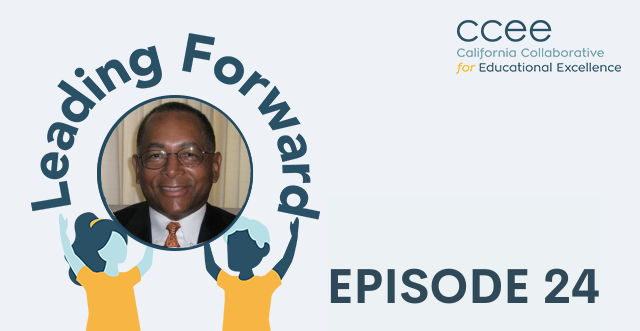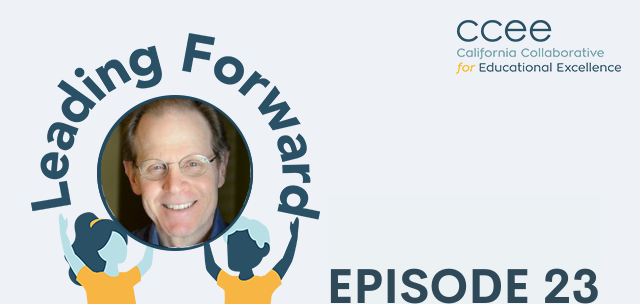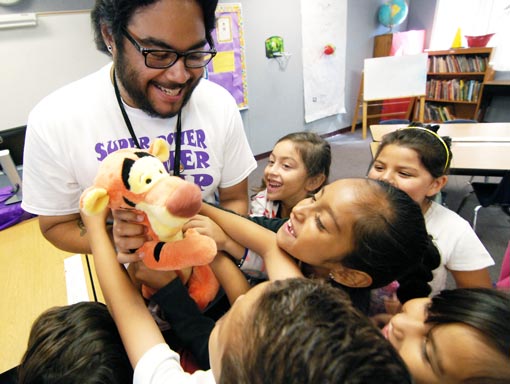Resource Category: Tools & Templates
BOTTLE BOWLING (ENGLISH)
BOTTLE BOWLING (SPANISH)
NATURE SCAVENGER HUNT (ENGLISH)
NATURE SCAVENGER HUNT (SPANISH)
AT-HOME SCIENCE LEARNING PARENT GUIDES
Resilient, Adaptive, Hopeful Leaders Who Thrive
DESCRIPTION
No one could have predicted that 2020 would have shaped up to be a year of uncertainty, hopelessness, and sadness. Yet, for many students, teachers, and leaders, dreams vanished, learning shifted, and education was fundamentally altered. We reflect on the changes that were made and strive to move forward to reimagine education for all learners. Creativity, adaptivity, perseverance, and resiliency are the building blocks for moving forward. Join this educational series of four short modules, which provide helpful videos, tools, and strategies as we uncover how to thrive in a new world of teaching and learning.
DEVELOPED IN PARTNERSHIP WITH
International Center for Leadership in Education (ICLE)
RESOURCE TYPE
Courses/Learning Paths, Professional Learning
TYPE OF AUDIENCE
Site Administrator / Instructional Coach, Systems Leadership
TOPIC AREA
Governance, Social-Emotional Well-being
KEYWORDS
Leading Forward, Systems Leadership
Brain-Considerate Learning with Dr. Ken Wesson
DESCRIPTION
Speaker and educational consultant in neuroscience Dr. Ken Wesson joins Leading Forward to share insights about the science of learning. In 25 minutes, Dr. Wesson explains the relationship between emotion, attention, and memory, and how educators can leverage current scientific understanding to help engage students.
SPEAKER
Dr. Ken Wesson, Educational Consultant, Neuroscience
LEADING FORWARD PODCAST
The “Mind Platter” for Student Well-being with Dr. Daniel Siegel
DESCRIPTION
New York Times bestselling author, neuropsychiatrist, Mindsight educator, and interpersonal neurobiologist Dr. Dan Siegel joins the Leading Forward Podcast to talk about learning, mental health, and fostering student well-being through a focus on seven components for healthy living, which he calls the “healthy mind platter”.
SPEAKER
Dr. Dan Siegel, Executive Director of the Mindsight Institute, Clinical Professor of Psychiatry at the UCLA School of Medicine, Co-director of the Mindful Awareness Research Center at UCLA
LEADING FORWARD PODCAST
Summer Technical Assistance Hub
DESCRIPTION
Summer 2021 offers an important opportunity to address the learning, social, and emotional recovery that so many California students need after a year of school closures and related challenges. In response to these challenges, CCEE and the Partnership for Children & Youth are offering no-cost technical assistance to LEAs needing support with the planning and implementation of summer learning programs. Click here for a flyer.
LAUNCH SUMMER TECHNICAL ASSISTANCE HUB
SUMMER TECHNICAL ASSISTANCE REQUEST FORM
DEVELOPED IN PARTNERSHIP WITH
Partnership for Children & Youth
Sperling Center for Research and Innovation (SCRI)
ADDITIONAL SUMMER LEARNING RESOURCES
FIELD GUIDE: REIMAGING SUMMER & EXPANDED LEARNING
2021 CALIFORNIA SUMMER LEARNING GUIDE: INVESTING IN RESILIENCE AND RELATIONSHIPS



